Uncategorized
-
 Animals
AnimalsA tiny crustacean fossil contains roughly 100-million-year-old giant sperm
Giant sperm preserved in an ancient ostracod may be the oldest known sperm fossil, showing that giant sperm have existed at least 100 million years.
-

When the human body outwits a deadly virus
Editor in chief Nancy Shute writes about triumphs of the human immune system over HIV.
By Nancy Shute -

-
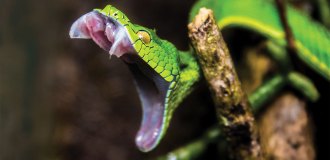 Animals
AnimalsCheap, innovative venom treatments could save tens of thousands of snakebite victims
Momentum is building to finally tackle a neglected health problem that strikes poor, rural communities.
-
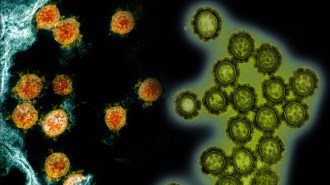 Health & Medicine
Health & MedicineWhat will happen when COVID-19 and the flu collide this fall?
As the Northern Hemisphere braces for a coronavirus-flu double hit, it’s unclear if it’ll be a deadly combo or one virus will squeeze out the other.
-
 Environment
EnvironmentWhat we know and don’t know about wildfire smoke’s health risks
As wildfires become more frequent and severe in California, Oregon and throughout the West Coast, concerns rise about harmful air pollution.
By Aimee Cunningham and Maria Temming -
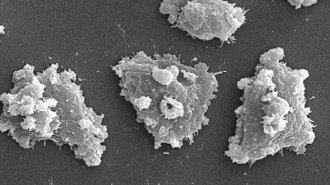 Microbes
Microbes50 years ago, scientists were on the trail of a brain-eating amoeba
In 1970, scientists were studying a brain-eating amoeba that had been implicated in a newfound disease. Today, infections by the parasite are still poorly understood.
-
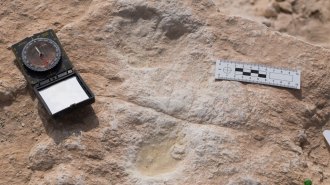 Anthropology
AnthropologySeven footprints may be the oldest evidence of humans on the Arabian Peninsula
In what’s now desert, people and other animals stopped to drink at a lake more than 100,000 years ago, a new study suggests.
By Bruce Bower -
 Oceans
OceansUnderwater earthquakes’ sound waves reveal changes in ocean warming
A new technique uses the echoes of earthquakes in seawater to track the impact of climate change on the oceans.
-
 Health & Medicine
Health & MedicineBlood donations show that the United States is still nowhere near herd immunity
Testing donated blood for antibodies to the coronavirus highlights that the vast majority of the United States remains susceptible to infection.
-
 Science & Society
Science & Society‘The Origins of You’ explores how kids develop into their adult selves
A new book describes the interplay of nature and nurture as children, at least in Western societies, grow up.
By Bruce Bower -
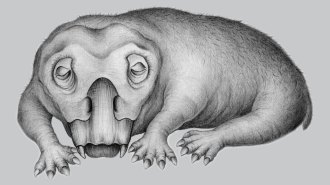 Paleontology
PaleontologyAncient Lystrosaurus tusks may show the oldest signs of a hibernation-like state
Oddball ancestors of mammals called Lystrosaurus might have slowed way down during polar winters.
By Susan Milius